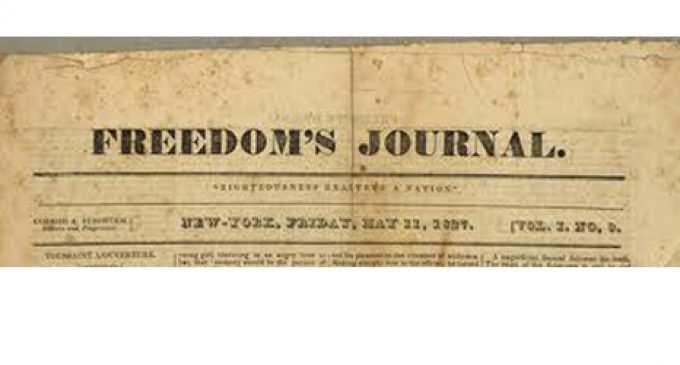Editorial: The Black Press

Whenever there is a steady series of public questions being raised about the “power” of Black Americans, you should always first consider the motive and purpose of the questions.
Such was the case recently when Richard Prince wrote a column, which was posted on The Root, titled: “Is The Black Press Still Powerful?”
Of course the answer is “Yes, the Black Press in America is still powerful.” What was the underlying motive for this question being asked? I wonder if Prince, a long-time employee of the Washington Post, has ever written a column titled, “Is The White Press Still Powerful?”
I seriously doubt it.
There is a larger contextual reality that also needs to be considered. The truth is that during the past year, there has been a consistent series of so-called “mainstream” news articles, editorials and blogs that have questioned the relevance, power and legitimacy of Black-owned businesses and institutions.
We certainly support and defend the right to freedom of the press and the right of all people to express themselves. Of course, the press has the right to be wrong. With that right, however, goes a responsibility not to distort the truth. This is not about neither freedom of the press nor freedom of speech. This is about the issue of racism and its proclivity to define and question reality. This is about the fact that we still live in a society that continues to be undergirded by the ideology of White supremacy that presupposes the false notion of Black inferiority. And as long as that is the case, there will be a need for powerful Black institutions. The Black Church is powerful. The Black Press is powerful. HBCUs are powerful. The NAACP and SCLC are still needed.
For me and my co-defendants in the civil rights case known worldwide as the Wilmington Ten, this is a personal matter when someone takes issue with the present-day “power” of the Black Press.
In 1972, the Wilmington Ten were unjustly sentenced to a combined total of 282 years in prison in the state of North Carolina. We were falsely accused and wrongly convicted of arson and conspiracy to assault charges during a 1971 racial riot over public school desegregation in Wilmington. A little more than a year ago, the National Newspaper Publishers Association (NNPA), the Black Press USA, launched an effective national campaign to get an official “Pardon of Innocence” for the Wilmington Ten.
For more than 40 years, many in the established media in the U.S. had published articles about the alleged “guilt” of the Wilmington Ten. In fact, the New York Times published a story in the late 1970s under the headline: “The Case Against the Wilmington Ten.” By the end of 2012, however, North Carolina Gov. Beverly Perdue agreed with the NNPA-led effort as she issued an unprecedented Pardon of Innocence to each member of the Wilmington Ten.
Gov. Perdue courageously stated, “This was a case of naked racism.” We are, therefore, grateful to Gov. Perdue for her historic act and for her candor. We are also very grateful to all of the Black newspaper publishers and writers throughout the United States who continue to uphold the proud banner of the Black Press. Let’s never underestimate the enduring value and respect of all our Black-owned businesses and institutions. Of course, we are always open to constructive criticism and recommendations concerning how to strengthen the economic status of the businesses that are vital to our forward progress. However, it would be a tragic error to assume that because we now have a Black American as president of the United States, there is no longer a need to sustain the very institutions, organizations and businesses that have contributed so much to our progress. I thank God for the powerful Black Press in America. We all should be more supportive of the Black Press, Black Church, HBCUs, and our ongoing struggle for freedom, justice and equality not only for Black Americans, but also for all people across the nation and world.
Benjamin F. Chavis Jr., president of Education Online Services Corporation and the Hip-Hop Summit Action Network, is one of the Wilmington Ten. Learn more about him at http://drbenjaminfchavisjr.wix.com/drbfc.















